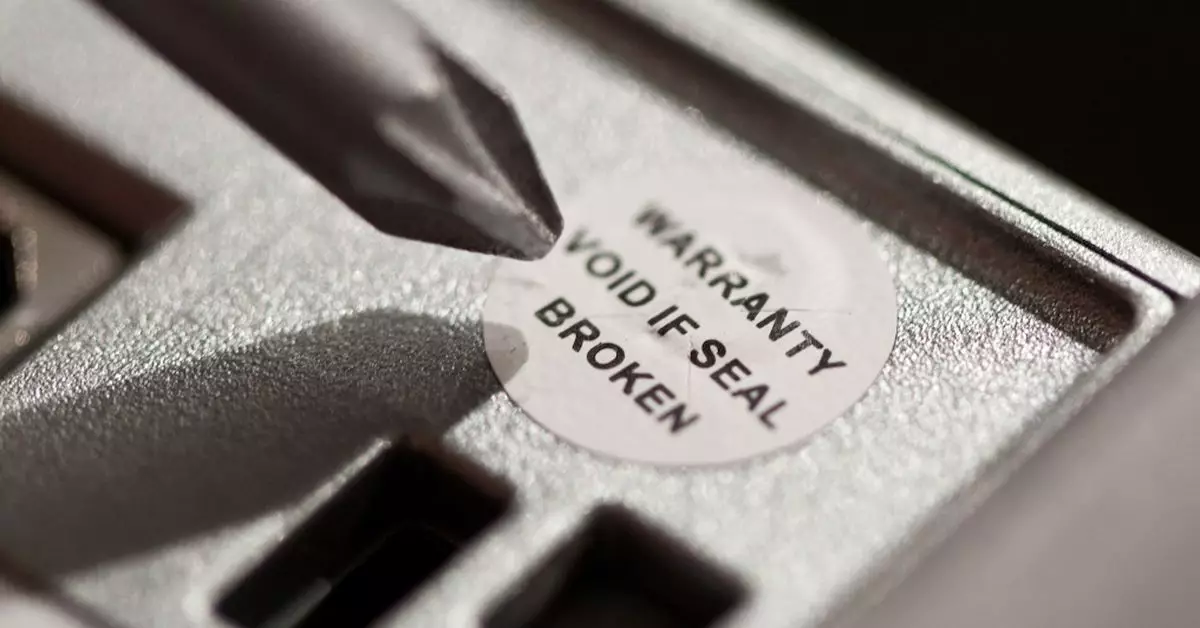Recently, the Federal Trade Commission (FTC) has issued letters to ASRock, Gigabyte, and Zotac informing them that the “warranty void if removed” stickers on their products are illegal. These stickers are often seen covering screw holes on gadgets, threatening consumers with voided warranties if the stickers are tampered with. The FTC is concerned that these companies are using these stickers to improperly deny warranty coverage to consumers.
The letters sent to ASRock, Gigabyte, and Zotac emphasize that the FTC’s concerns go beyond just the surface-level issue of void stickers. The FTC is instructing these manufacturers to revise their warranty policies and customer support practices to ensure that they are not illegally restricting consumers’ rights. For example, ASRock’s warranty explicitly states that the warranty will be null and void if the product is opened or modified in any way. Gigabyte’s warranty includes a similar provision regarding the removal or damage of manufacturing stickers.
The FTC is invoking the federal Magnuson-Moss Warranty Act in this crackdown on warranty void stickers. This act aims to prevent companies from enforcing unfair warranty practices and misrepresenting their warranties to consumers. Specifically, the act prohibits companies from tying their written warranties to the use of specific brands or services unless certain conditions are met. By issuing these letters, the FTC is reminding ASRock, Gigabyte, and Zotac to comply with the Magnuson-Moss Warranty Act.
This is not the first time the FTC has taken action against companies for illegal warranty practices. In 2018, the FTC warned Nintendo, Sony, Microsoft, Asus, HTC, and Hyundai for similar violations. Nintendo, Sony, and Hyundai quickly updated their policies in response to the FTC’s warning. The FTC is now turning its attention to ASRock, Gigabyte, and Zotac to ensure that they also rectify their warranty terms.
Interestingly, while the FTC is cracking down on warranty void stickers in the US, these stickers may be legal in other parts of the world. iFixit has reported on the legality of these stickers in different regions, highlighting the variations in consumer protection laws globally. Asus, one of the companies previously warned by the FTC, has been reevaluating its customer support and warranty policies following investigations by consumer advocacy groups.
The FTC’s recent actions against ASRock, Gigabyte, and Zotac serve as a reminder to all manufacturers to review and revise their warranty practices to ensure compliance with consumer protection laws. The crackdown on warranty void stickers is part of a broader effort to safeguard consumers’ rights and prevent companies from misleading or exploiting their customers. Companies should take heed of the FTC’s warnings and make the necessary changes to avoid facing legal consequences in the future.


Leave a Reply
You must be logged in to post a comment.